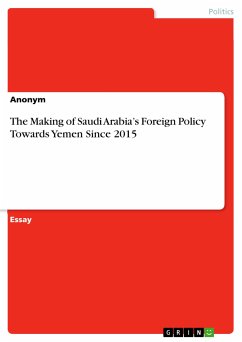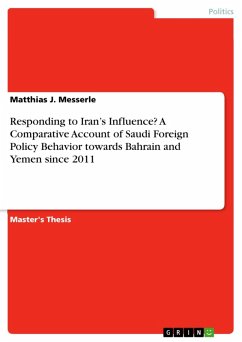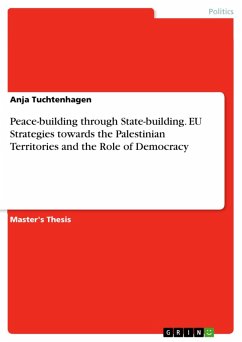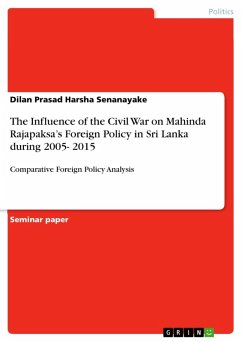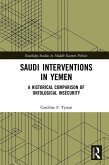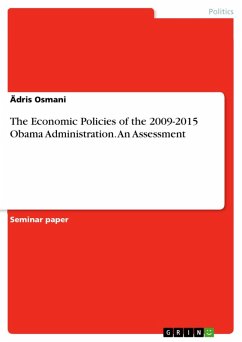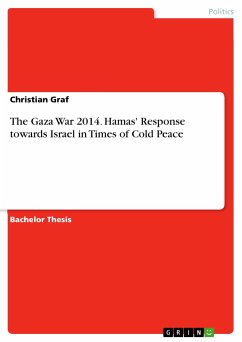Essay from the year 2020 in the subject Politics - Region: Near East, Near Orient, grade: 1.3, University of Tubingen, language: English, abstract: When dealing with Saudi Arabia's policies towards the Yemeni conflict, it is worthwhile taking the domestic level of analysis into consideration. Among the many domestic factors which might be relevant to this study, the author will focus on three dimensions: Saudi Arabia's population, the economic dimension which also affects the Kingdom's foreign policy, and the regional environment in the Persian Gulf. In March 2015, the Kingdom of Saudi Arabia embarked on a military intervention in neighboring Yemen. About half a year earlier, in September 2014, the Shi¿a Houthi rebels (self-declared Ansar Allah, Arabic for "Helpers of God") had seized control over Yemen's capital Sanäa and forced the incumbent Yemeni president Abdrabbuh Mansur Hadi to flee, first to the Southern city of Aden, then in March 2015 to Saudi Arabia where he has stayed ever since (mostly). The primary goal of the Saudi-led military coalition (including the United Arab Emirates and several Yemeni militias) has been to expel the Houthi rebels from the capital Sanäa and to reinstall the internationally recognized government of Abdrabbuh Mansur Hadi (without success until the time of writing). Which domestic and regional constellations can explain Saudi Arabia's policies towards Yemen since the beginning of the war in March 2015? Instead of looking at these events from the Realist perspective (i.e. through the lens of the dominant Realism theory in International Relations), a Foreign Policy Analysis (FPA) approach shall be undertaken. While Realism as a school of thought is primarily concerned with (economic and military) power and security, and may thus have certain advantages in the study of authoritarian states in general, and of the Yemen war, the FPA approach offers valuable insights into the making of the Kingdom's policies towards Yemen. FPA, in contrast to the strict Realist focus on the state as a monolithic category, sheds light on differences within the state and other factors, be they economic or transnational.
Dieser Download kann aus rechtlichen Gründen nur mit Rechnungsadresse in A, B, BG, CY, CZ, D, DK, EW, E, FIN, F, GR, HR, H, IRL, I, LT, L, LR, M, NL, PL, P, R, S, SLO, SK ausgeliefert werden.

